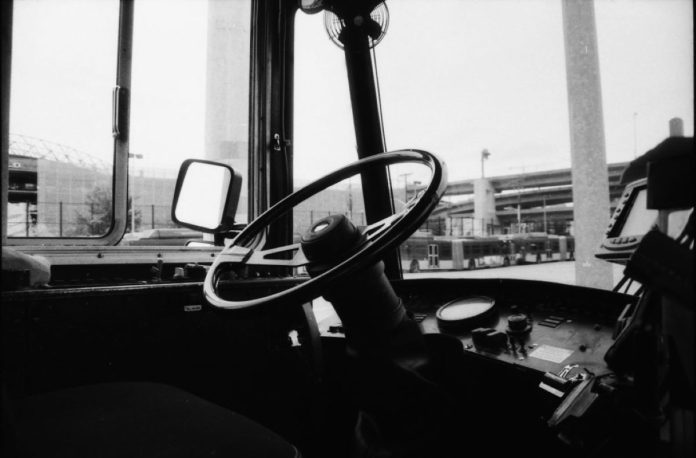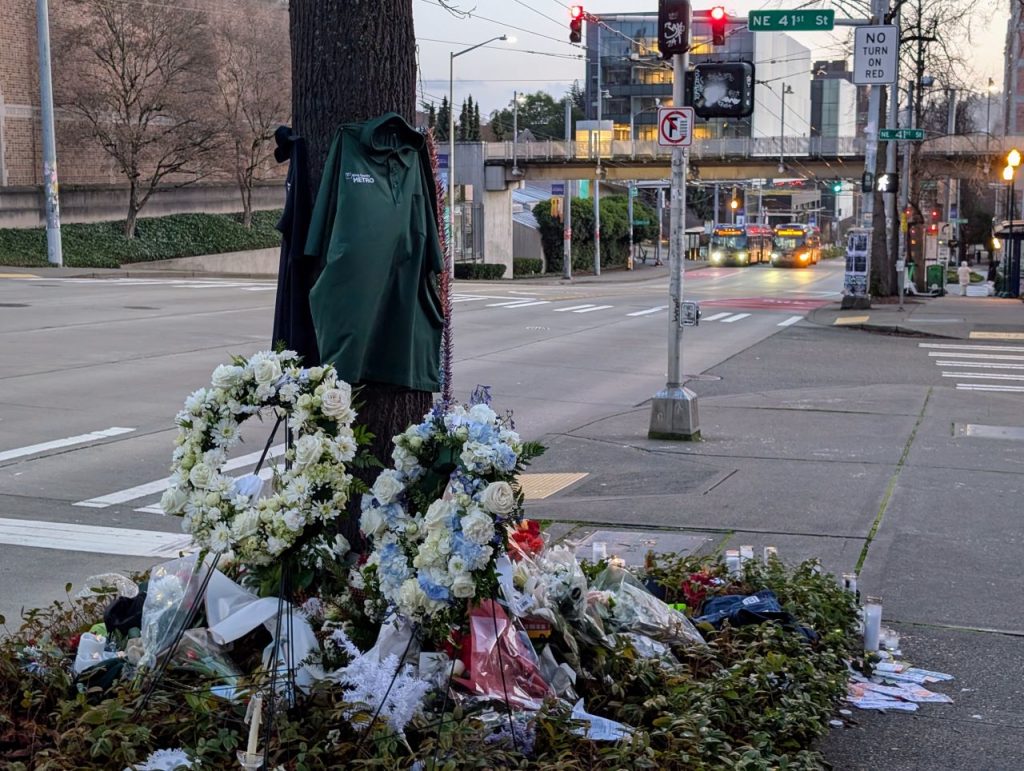
I always called him by his full name because it made him laugh. Shawn Yim and I crossed paths in the lunchroom, on the road, at our lockers, the bullpen, the layovers, and everywhere else. We moved in similar circles.
He and I both had the seniority to pick away from Atlantic Base, home of the hardest and most challenging routes; and we both had the seniority to pick away from night work, but for different reasons we wanted to be there, working our night shifts together downtown. I do it because I like the people and the pace; Shawn did it because he needed the money, and overtime is best found on the routes, times, and places that are least desirable.
But the 70 is such a cush route.
It doesn’t even go to 12th and Jackson. It’s too short for sleepers. It’s just the 70. Shawn wasn’t downtown, either. This happened in the U District. And, reading this at home, you might think 3am is a uniquely dangerous time, but it isn’t. In post-Covid Seattle there’s no difference in safety between 3pm and 3am. Both are equally fraught. Remember the new full-time bus driver who, perhaps because he was African, was recently attacked by three men who pulled him off his bus at Third and James and stripped him naked and beat him to a pulp? That happened during afternoon rush hour, broad daylight with tons of people around.
Our city allows this sort of thing.
Let the terrible sentence live now as it did then, in that poor operator’s horrific experience. He will never forget those minutes. The same is true for the ten people recently stabbed near 12th and Jackson within a 36-hour period, by one deranged individual who attacked all of his victims unprovoked and mostly from behind. There are good folks up there at that notorious intersection, from the small business owners to the seniors in affordable housing to yes, the youngsters outside struggling with drugs. I happen to really like some of those people. They don’t deserve to be stabbed.
Neither did Shawn. I consider his final moments with the paralysis of intimate sorrow, intimate because I’ve probably driven the very same vehicle was sitting in, and because I know exactly the terrain and timbre of his final time and place. Shawn Yim as he stumbled away from the bus, making it only a short distance before collapsing on the concrete, over there in the alley behind Wells Fargo, a young and healthy 59 year-old dying alone, collapsing not just in loss of blood but also in belief. How could it possibly end this way, so badly and so soon? All the things I’d planned for, hoped for, wanted to do, fix, see, live….
You remember that I was in Paris during the 2015 terror attacks. My next book dives deep into that. But you also remember how decisively Paris, as a system of governance, took action in responding to something even as nebulous as terrorists, taking preventative measures while pursuing the appropriate action behind the scenes, swiftly and with the use of considerable resources. They ensured safety when the enemy was unknown and few.
Our situation is different. Seattle’s problems and dangers are not hidden but obvious. They repeat in predictable and terrifying ways. Violent behavior happens here without intervention. Life-destroying drugs can be used in broad daylight without consequence. Unstable souls with desperate needs, dangers to themselves and others, are dumped on the street and left to rot amongst the crowd. Hundreds of millions of dollars and years of lip service are expended in the name of solving these crises, while Third Avenue remains exactly as unsafe as it was four years ago.
The fact that it was Shawn Yim crushes me.
A robust and friendly man, one of the few Korean Americans at Atlantic Base besides myself. I rarely brought up our shared heritage but it was always there between us, an unspoken bond the others couldn’t share. We would joke about the miserable state of things, the jesting laughs of our brief interactions emboldening us to carry onward. “I don’t know how you do it, Nate,” he’d smile, watching my enthusiasm as I prepped for another night on my 7.
It happened five minutes into his last trip of his shift.

Home stretch, almost done. He probably took the piece (we call shifts pieces) thinking this’ll be easy, route 70 at night no big deal, nice easy route during the hours when there’s no traffic, even better. What was he saving up for, working all those hours?
The pain of losing Shawn is the fact that I always hoped to know him better. We were both of us continuously in motion, rushing through our lives, aware that we’d get more out of knowing each other but, you know, duty calls. Our friendship was a lifetime of unfinished conversations. Who was he, deep down?
The two of us standing by the microwave, Shawn with his polished wire-frame glasses and trademark light blue oxford–only senior operators wear those, because the uniform store no longer makes them – with a reflective vest on top. His bald head and thoughtful eyes plus the professionalism of the glasses, contrasted with that safety vest, cast him as a sort of urban intellectual, the kind of person you can’t quite pin down, because they don’t fit into any one box.
I always wanted to ask another question, share a little more. He knew my partner, and would joke about how good her Korean is.
“That’s so creepy, you sound like my sister!” he’d tell her, laughing with that handsome, tired smile of his. Other times he’d be driving the bus I was riding, and we’d wax reflectively about human nature and the state of the city.
Of course I wish I could remember our exact conversations. But how can I, sitting as I am in the shell-shocked immensity that is violent death? At least I can still recall the feeling, the easy sensation of another day with one of your favorite coworkers, joking the trip away while watching the road together. He was so good at letting me be myself, even when he had different views. I did the same for him. We never tried to change each other. Talking with him brought me joy.
Why do we delay the things that matter most?
It is the City’s responsibility – our leaders and ourselves – to make Seattle safe. To foster environments where people don’t have to risk damage and death by merely using transit. After all that has happened and continues to happen, who among our leaders would dare to say meaningful progress has been made? My friends on the street and I know differently. We watch and wait as ever we have, waiting for legislation that could so easily reverse a lot of the things Seattleites have to suffer, waiting for someone with the agency and power and courage to come forward and make some real moves. That person will be named a hero.
But whoever they end up being, they will be too late for Shawn Yim.
Nathan Vass is an artist, filmmaker, photographer, and author by day, and a Metro bus driver by night, where his community-building work has been showcased on TED, NPR, The Seattle Times, KING 5 and landed him a spot on Seattle Magazine’s 2018 list of the 35 Most Influential People in Seattle. He has shown in over forty photography shows is also the director of nine films, six of which have shown at festivals, and one of which premiered at Henry Art Gallery. His book, The Lines That Make Us, is a Seattle bestseller and 2019 WA State Book Awards finalist.


